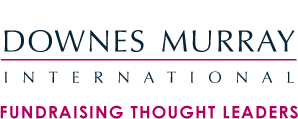Click to go back

Resolutions for 2015 (As made in 2006)
Nine years ago the December issue of Fundraising Forum featured a list of resolutions for the coming year. We’d be wise to adopt them again in 2015! Make donating to your organisation a long-term relationship.
Make sure that between solicitations, donors are thanked for past gifts, receive updates on the use of previous gifts, and receive general information about the organisation. Being a donor should be an ongoing, not an episodic, relationship with your organisation.
Provide a full range of payment options.
Allow donors to fulfil their pledges with cash, cheques, credit cards, payroll deduction, and electronic transfers.
Embrace creative fundraising techniques.
Place a ‘donate now’ button on your website; form a strategic partnership with a business that shares your organisation’s values; include workplace funding in your campaign; try grassroots givers like churches and service clubs; seek gifts-in-kind from retailers and manufacturers.
Create an endowment.
Endowments help to stabilise organisations by providing a steady stream of reliable income, in good times and in bad.
Hire the help that you need.
Complex fundraising instruments like capital campaigns and planned giving programmes are usually more successful when organisations seek professional help in creating and operating them. Keep your promises, and demand that your donors keep their promises. Always use donated funds for the purposes intended by the donor, and require donors to honour their pledges.
Planning prevents poor performance.
Any campaign requires meticulous planning prior to launching in order to be successful.
Keep meticulous records.
Every successful campaign is well documented, especially for legal and fiduciary reasons; documentation includes such things as expenses, donation amount, date donation was received, portion of donations that are tax deductible, and donor contact information. Set ambitious and specific goals. Goals that are set high are excellent motivators, and they can always be modified if they are found to be set too high – or too low.
Organisations cannot live by gifts alone.
On average, earned income – fees for service, sale of products, royalties, etc. – provides nonprofit organisations with about half of their income.
Concentrate on individuals.
Corporations and foundations control substantial resources, but the sheer number of individuals makes them by far the largest source of funding – more than 80% – for nonprofit organisations.
Place your eggs in different baskets.
Just as your personal savings are safer if you invest in many different types of securities, your organisation is safer if you raise funds from many different sources, including individuals, corporations, and foundations; never depend on a single ‘angel’ to support your organisation.
Know your donor.
People give for different reasons, at different levels, in response to different needs and opportunities, so it is essential to know your organisation and to study its donors; also, do not be afraid to give donors different levels of recognition, depending on what they give. Just as all politics is local, all fundraising is personal.
Donors, as a rule, do not so much give money to organisations, as they give money to people – people whom they know, trust and respect – which means that who does the asking is at least as important as the cause for which the funds are being raised.
Fundraising, like charity, begins at home.
It is vital to be able to demonstrate that all of your organisation’s board members, officers, and volunteer fundraisers make significant gifts to your campaigns; what is considered to be a ‘significant gift’ will depend on the size and budget of an organisation.
With acknowledgement to The Non-profit Good Practice Guide of The Dorothy A. Johnson Centre for Philanthropy and Nonprofit Leadership.
This article first appeared in
Fundraising Forum: Issue 70, December 2005.

